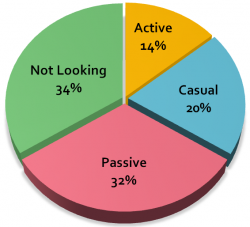 Is LinkedIn a social networking site, a job board, or a little of both?
Is LinkedIn a social networking site, a job board, or a little of both?
Most people consider LinkedIn to be a social networking site, or more specifically a professional network service. LinkedIn describes itself as an “interconnected network of experienced professionals.” However, when I take a step back and take an objective view of LinkedIn, I see a great deal of “job board” functionality with some social networking features.
Before you cry “blasphemy!,” let’s do some research and look at the facts.
What Exactly is a “Job Board?”
I tried doing some research to find a definition of exactly what a “job board” is, and found that Wikipedia considers Monster, Careerbuilder, Hotjobs, Dice, etc. to be employment websites. According to Wikipedia, an “employment website” is “…a web site dealing specifically with employment or careers. Many employment websites are designed to allow employers to post job requirements for a position to be filled and are commonly known as job boards.”
Common Features of Job Boards
According to INTERNET Inc, “job boards are usually free for job seekers though there are some exceptions mostly in the realm of upper management and executive jobs. Job ads can usually be found by browsing or through search on keywords, job type and location. Employers usually pay a fee to post job ads… Most job boards also offer employers resume database access for searching out candidates that match specific criteria. Additional services offered by job boards to employers often include: job agents that alert recruiters by e-mail to newly published job seeker resumes that meet specific criteria, …and brand building advertising with e-mail campaigns, banners, buttons and company profiles.”
What LinkedIn Says About LinkedIn
I did some digging and found LinkedIn’s press site. Under the heading of “What is LinkedIn?,” you can read that “When you join, you create a profile that summarizes your professional expertise and accomplishments.” Continue reading →
 Continue reading
Continue reading 

 This question has been burning in my mind for quite some time – why is it that so many ATS/recruiting CRM vendors offer poor or limited candidate search functionality? I’m not talking about ATS vendors you’ve never heard of – I’m talking about some of the biggest names in Applicant Tracking/Candidate Relationship Management applications.
This question has been burning in my mind for quite some time – why is it that so many ATS/recruiting CRM vendors offer poor or limited candidate search functionality? I’m not talking about ATS vendors you’ve never heard of – I’m talking about some of the biggest names in Applicant Tracking/Candidate Relationship Management applications.